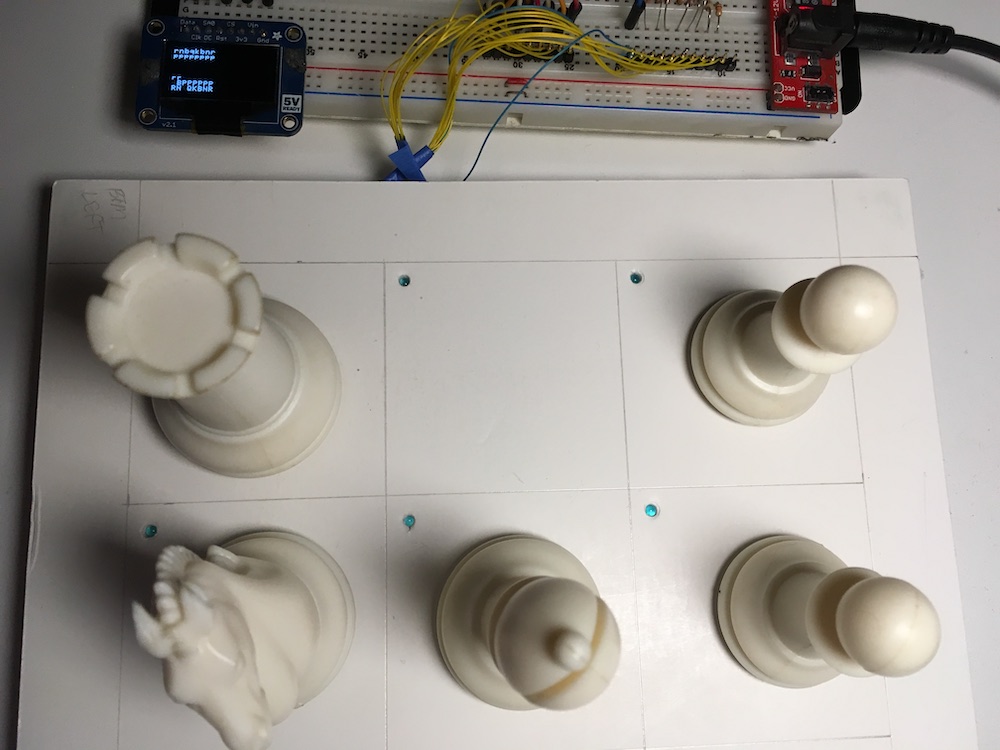ChessLR Demo of Software Keeping Track of Where a Piece Is Moved
<<Previous | TOC | Next>>
Some progress in terms of software and using my tiny OLED display. Sadly the display is too small for me to read very well, so I'll have to put a rush on the touch display development! I demo two programs in the video. The first was from progress report 5 which just had a stop frame animation. I wanted to show live video. The second shows the board keeping track where the pieces are moved from and to.
I setup my board software to simulate the lower left corner of a full sized board, and the rest of the program logic thinks it's connected to a full sized board.
Display shows the current state of the board
Note: The letters on row C got clipped because of the displays refresh rate when I took the picture. They look like small r's but they are P's.
The plan for the OLED, until I replace with the touch screen, is to show the board position on the left of the screen, and the last few moves on the right. Likely I would also just put a game timer to show how long you have been playing; not as a chess clock. If I didn't want to use the the touch display, this little OLED really would be great.
rnbqkbnr Bla 00:00:00
pppppppp Whi 00:00:00
1. b3 d5
2. Bd2 e6
3. Nf3 Nf6
PP 4. g3 Bc5
BPPPPPP 5. Bg2 O-O
RN QKBNR 6.It should be noted however, the OLED updates a little slow. I am transferring 1K of data over the i2c line. This does cause a problem if you try moving a piece while it is updating the display, as you will miss the move. I might be able to put the display refresh into it's own thread, but I don't know how that effects the i2c data line.
I haven't checked in my source code yet. Look for that on the next update. I'd like to spend more time on handling how it makes corrections for sliding pieces.
